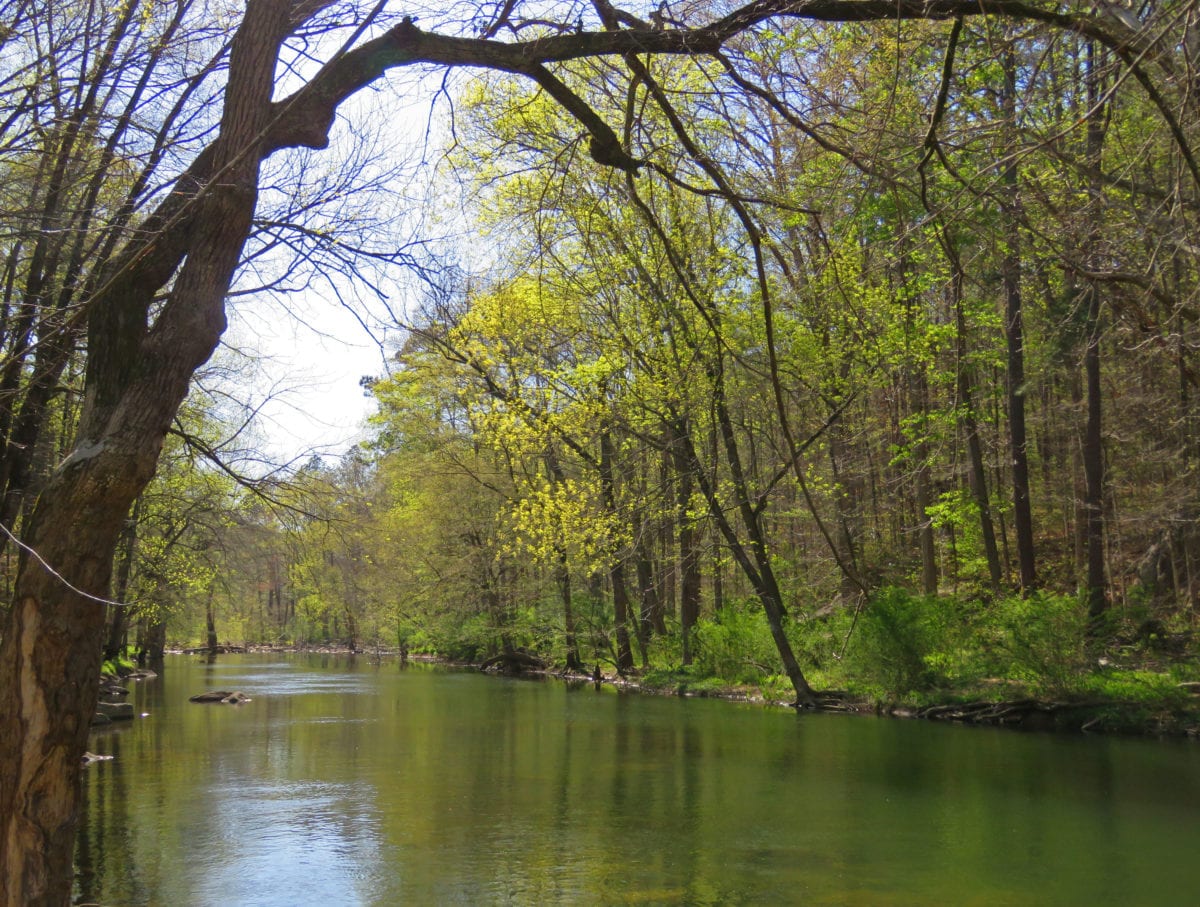
A view of Little Sauty Creek in the Buck’s Pocket State Park Campground, now closed: Glynn Wilson
By Glynn Wilson –
GROVE OAK, Ala. — Jamie Godwin began telling me her story at a party by a campfire on a bluff looking out over Shoal Creek in St. Florian, Alabama, near Muscle Shoals. She is inspired in part by the story of a native American medicine woman named Teh-la-nay, who once walked for five years all the way back here from Oklahoma after the forced removal by Andrew Jackson’s army on the Trail of Years.
As they tell the story in the documentary on the Muscle Shoals Sound, Teh-la-nay made the long journey back to her homeland because none of the rivers in Oklahoma could sing quite like the Tennessee, where the Euchee Indians believed a female spirt lived in the river and sang them songs.
Godwin is a single mother of three boys from Dekalb County who has done her research into her own Cherokee ancestry and says her fifth great grandmother made a similar journey back to the land of Lake Guntersville and Buck’s Pocket State Park, where the Cherokee made their home long before the Scots-Irish settlers came to the area from across the Atlantic in the early days of American colonization.
About five years ago, after moving away to work near the state capital of Montgomery, she moved back to her home town and bought the old country store on County Road 402. She was set to raise her kids not far from the entrance to the state park campground by selling supplies to tourists and campers. But then Governor Robert Bentley decided to close the campground, and her plan for self-sufficiency sort of fell apart.
Now a rural farming community with only about 71,000 inhabitants, DeKalb County was created by the Alabama legislature on January 9, 1836, from land ceded to the federal government by the Cherokee Nation. The county seat is Ft. Payne, and there is still some timber harvesting, hunting and fishing in the area, but no major industry. Birding has now become a focus of efforts to draw in tourism, although it is not clear how successful that has been in the state other than on Dauphin Island and in Baldwin County.
Buck’s Pocket State Park was set aside in 1971 during a reorganization of the state Department of Conservation and Natural Resources to help fulfill the conservation mission of the state to “acquire and preserve natural areas; to develop, furnish, operate and maintain recreational facilities, and to extend the public’s knowledge of the state’s natural environment.” Some of the goals of the agency are to “preserve unique natural features and integrity of state parks for future generations” and to “promote good will and enhance the public image” of the state.
While Alabama lags behind the country in many areas, it was one of the first states to embrace conservation about the time the University of Alabama football team began winning national championships. But according to some critics, like Ms. Godwin, even before mostly conservative white males turned out in record numbers to elect Donald Trump president of the United States, who appointed the least qualified cabinet in American history with most of the appointees on the record opposing the very missions of the agencies they were hired to run, Republicans in Alabama have long employed oil men and conservative lawyers to run state agencies with no real qualifications to fulfill the mission of preserving the environment.
When Robert Bentley appointed lawyer N. Gunter Guy Jr. to the post of conservation commissioner, he continued in the tradition of Bob Riley’s appointee M. Barnet Lawley, a former oilman, to try and emphasize the profit motive as a higher priority for state parks than conservation. Republican Governor Kay Ivey recently replaced him by appointing Christopher M. Blankenship. No background on his experience in conservation can be found on the department’s website.
After Republicans took over the legislature in 2010, they began siphoning off money from state parks, so Bentley threatened to close any park that did not pay for itself from user fees, an idea that is anathema to state and federal parks across the country. As Ken Burns pointed out in his documentary on the national parks, setting aside special wild and scenic places for the plant and animal species and the enjoyment of future generations is one of America’s best ideas, which is now at risk.
Plus, anywhere state or national parks exist, the local economy, local businesses and governments benefit from the revenue generated by tourism. Jobs are created. Taxes are paid.
In a town hall meeting called to discuss the potential closing of Buck’s Pocket, a place that used to be famous as a haven for defeated politicians, Ms. Godwin stood up and pleaded her case in front of the governor himself.
“In front of a ballroom with over 400 people, he said he wouldn’t close the park and thanked me for being a small business owner, the ‘backbone of America’,” she said in an interview captured on video.
After the public meeting, she said, the governor pulled her aside, patted her on the head, and promised that if it took 10 special sessions he would not close the park.
“Shortly thereafter he got reelected and closed the state park,” she said, or at least the campground. It is still technically open as a day use area, but not many people use it. “So my business has plummeted. I had to lay off people, cut my hours, and hold off on investments to revive my home town.”
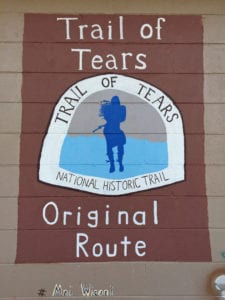
A Trail of Tears sign painted by Jamie Godwin: Photo by Glynn Wilson
She’s also noticed there’s been more graffiti in the nearby caves where the Cherokee hid during the Trail of Tears migration since there are no longer managers and state park rangers on the ground to oversee and police the area.
“All of this used to be Cherokee land,” she said. “I feel a strong connection to this land, maybe because of the Cherokee connection or maybe because it’s just my home town. But I just couldn’t stand to see it die.”
She even made the trip to Cannonball, North Dakota a couple of years ago to support the Lakota Sioux who were protesting the Dakota Access Pipeline at Standing Rock, and made a video.
Her store is the only business left in Grove Oak, and it is now being used mostly as an artist work space. She is not stocking it with camping supplies, since the campground is closed. When she was a child growing up here, she said, the town used to have a school, a post office, a couple of stores and a restaurant.
“It was a thriving little community,” she said. “Over the past 20 years or so, everything closed down, one by one, like so many small towns across America.”
When she came home after working in Wetumpka near Montgomery, she was camping with her three sons in the park campground but had to drive 15 miles just to pick up marshmallows and other supplies. When they passed the old closed down country store, she had an idea.
“Why don’t we just bring Grove Oak back?” she thought.
So she found the owner of the store and bought it for a discount. Then the governor threatened and then closed the campground.
When asked why she thought he did it, she said he wanted to increase taxes.
“He wanted a tax increase,” she said. “He said if he didn’t get the tax increases he was going to close the parks. He used our public lands as leverage. He got his tax increases, and my park is still closed, over two years later.”
She said the park manager was upset about the closing, grumbling about state park mismanagement, but just retired.
Since Bentley was forced to resign or face impeachment and time in prison for corruption, and voters approved a constitutional amendment to save the state park generated revenue from being siphoned off by the legislature and opened the door to privatization of park concessions, agency staff now say the campground could reopen in the fall thanks to a $526,996 grant from the Alabama Department of Economic and Community Affairs.
Most of that money, however, is being used for a planned riding trail for All Terrain Vehicles or ATVs, a recreational activity that tears up the land and is prohibited in and around national and state parks everywhere.
While camping in Montgomery after my trip to Muscle Shoals and Buck’s Pocket, I contacted state parks director Greg Lein and suggested that if the state doesn’t want the park because it doesn’t make a profit, perhaps it could be given back to the Cherokee people.
“We did not close the park, we closed the campground,” he said in an email interview. “Since that time, staff from Lake Guntersville State Park have monitored the two day use areas there, one of which received recent improvements from a local county leadership group.”
He said “the trails grant project is underway,” although I didn’t see any work being done anywhere around the park and it appeared in total disarray to me, with trails overgrown and the store and living quarters grown up, even broken windows partially boarded up. The campground sign was rusting off it’s hinges and I had to stand it back up myself to take a photograph.
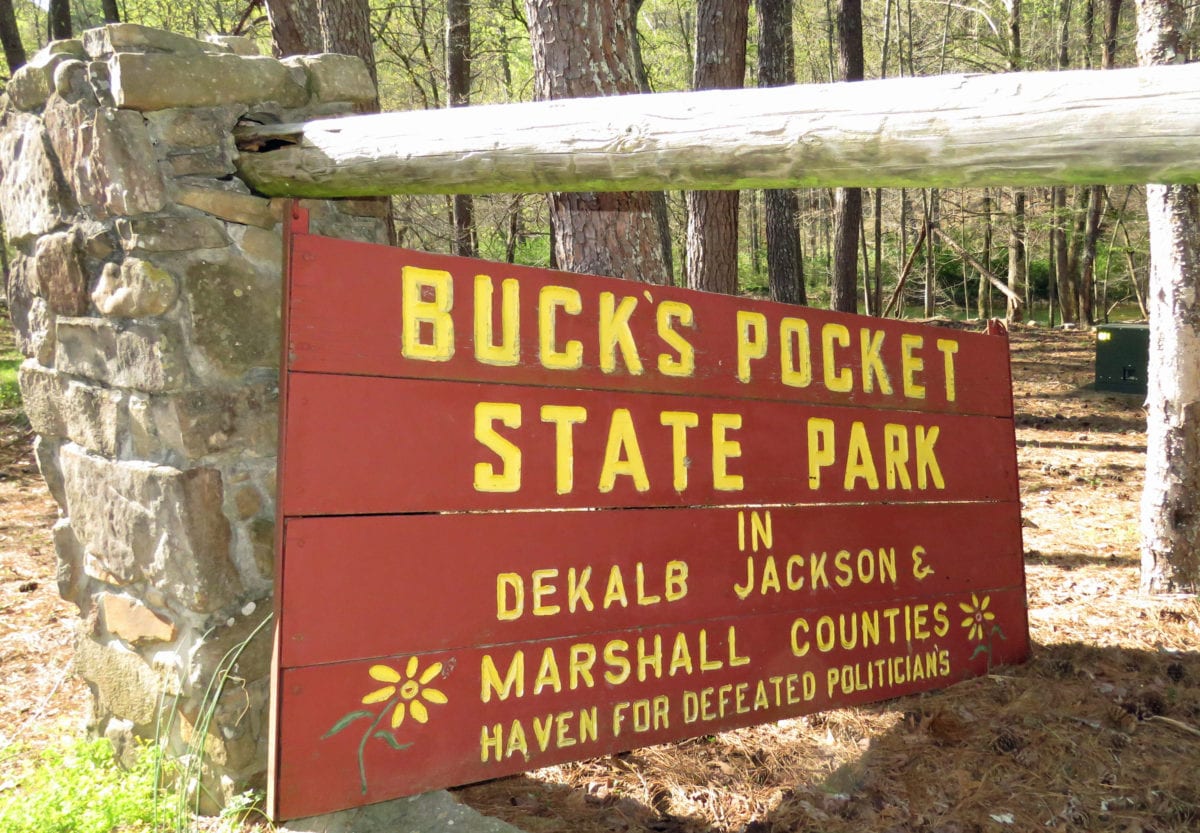
The Buck’s Pocket State Park sign, rusted off the hinges: Glynn Wilson
He claimed the grant will add improvements to the trails and the campground, which he said “are expected to be open later this fall.”
“We do not operate our park system with an intent to make profits,” he said. “Our park system is operated and managed as a user pay system. We collect fees, and those fees fund our annual operations. Other state park systems receive General Fund appropriations to fund their respective annual operations. We do not.”
In fact, the parks have been losing money since Gulf State Park in Gulf Shores was smashed in a direct hit by Hurricane Ivan in 2005. That park generated extra cash that made up for shortfalls in smaller parks and campgrounds around the state. During Bentley’s tenure, he launched a project to rebuild the lodge and restaurant at Gulf State Park, in part from state money received in the massive court settlement negotiated by President Barack Obama’s administration in the wake of the BP Gulf oil disaster in 2010. Construction is now underway.
Yet Lein admitted the Buck’s Pocket campground was closed “because it was operating in the red and we could no longer afford to operate it in that manner with our funds being diverted.”
“We closed numerous sites for that same reason,” he said. “Voters approved a Constitutional Amendment in 2016 to prevent any future fund diversions, which paves the way for this park’s renovations and the re-opening of the campground. Revisit the park next year and let us know what you think once the renovations are completed and campground is open.”
Ms. Godwin is skeptical, but she will be happy when the campground reopens and she can get back to business. Even the ATV trail idea doesn’t seem too bad to her.
“It doesn’t bother me too bad,” she said in a Facebook message. “It’s a beautiful state park, right here on the Trail of Tears, and it’s not being used for the purpose it was intended.”
Perhaps instead of closing the campground, Bentley should have kept it open. He could have stayed there for cheap after being kicked out of the governor’s mansions in Montgomery and Gulf Shores.
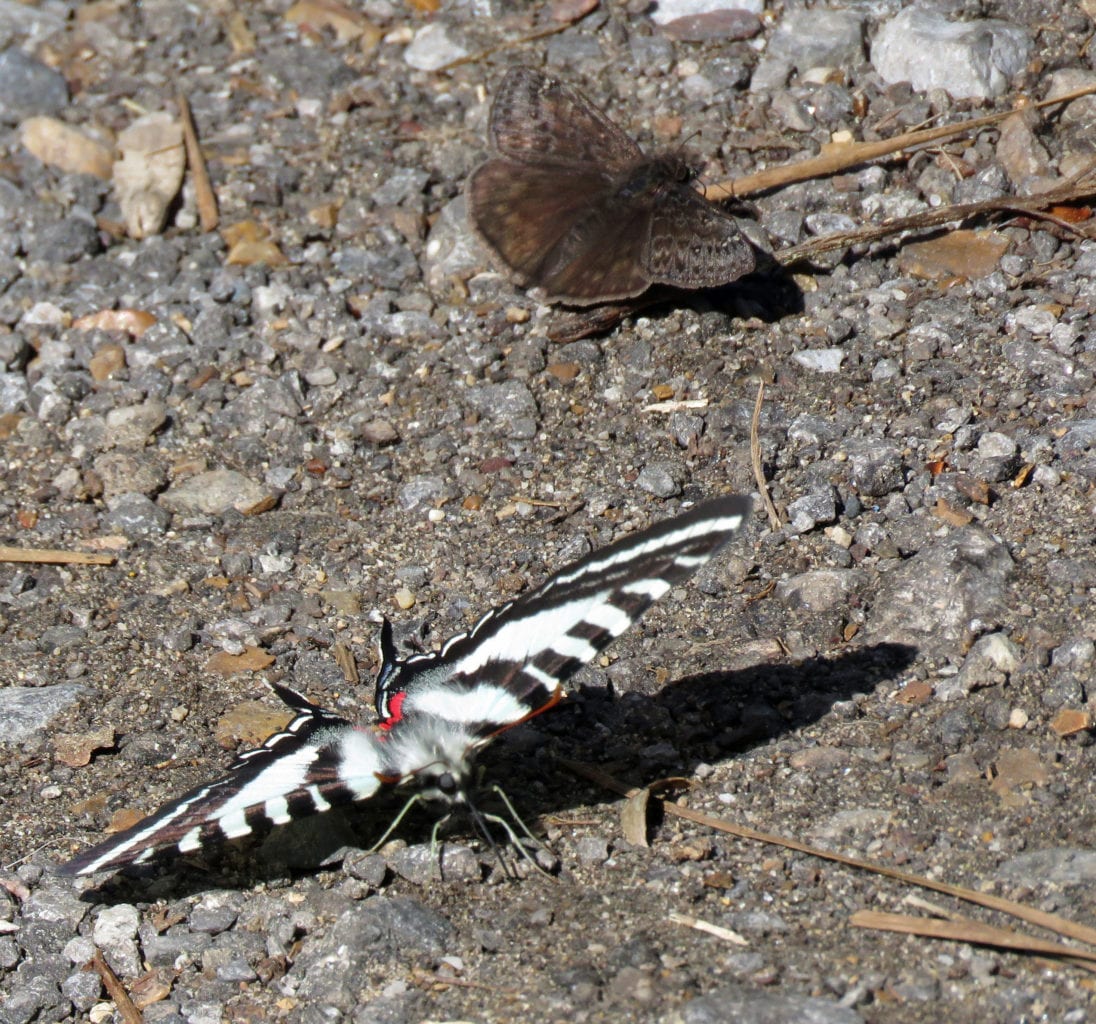
A butterfly and a moth play in the Buck’s Pocket State Park Campground, now closed: Glynn Wilson
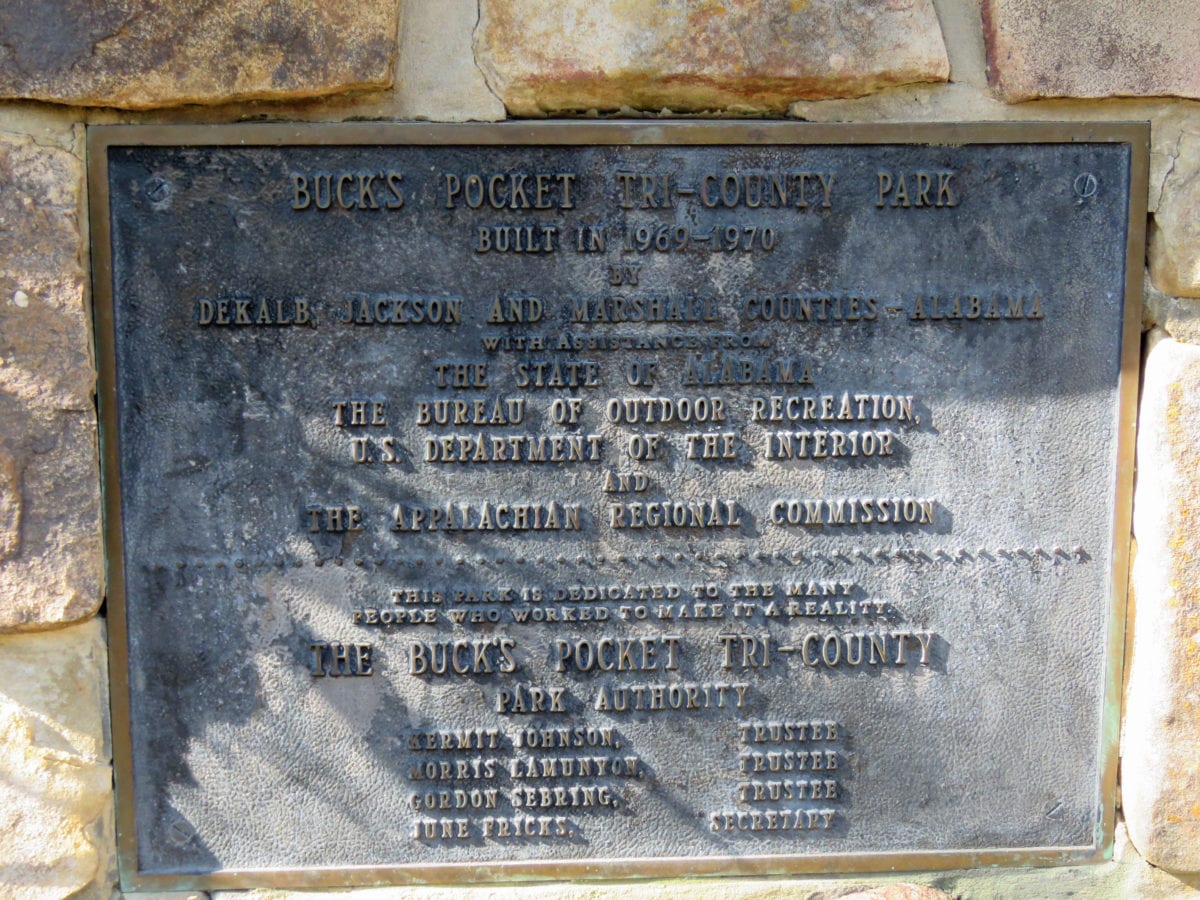
The Buck’s Pocket State Park dedicated plague: Glynn Wilson







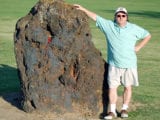
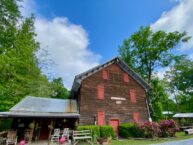





Reader Supported News - No Paywall, Google Ads, Popup Ads, Sponsored Content or A.I. - Support American Journalism with GoFundMe
Good to know about the park. Thanks for sharing such a good information. I will visit soon.
Reader Supported News - No Paywall, Google Ads, Popup Ads, Sponsored Content or A.I. - Support American Journalism with GoFundMe
Bad idea to have motorized vehicle trails, un-natural as hell, destroying small creatures and tearing up the earth, not to mention the ungodly noise.